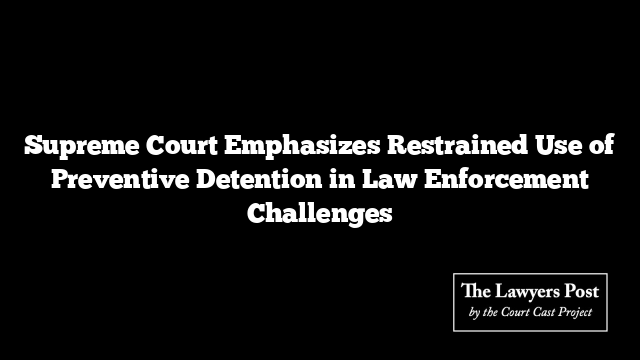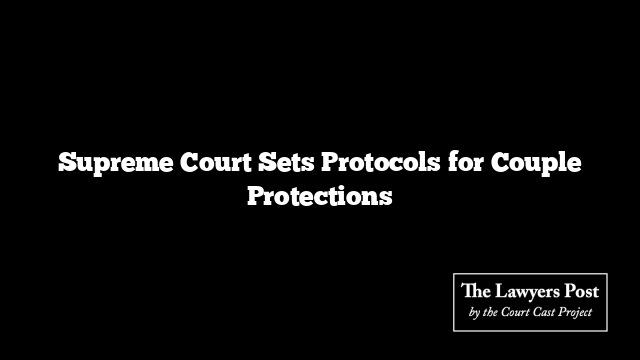In a landmark judgment, the Supreme Court emphasized that the incapacity of state law enforcement to address challenges in maintaining law and order does not justify the use of preventive detention. This decision came as the court overturned a preventive detention order against a person accused of chain snatching under the Telangana preventive detention laws.
The court’s analysis highlighted several critical guidelines for the imposition of preventive detention:
- Authorities must base their decision on relevant and significant material to achieve the necessary subjective satisfaction.
- An implicit duty exists for the decision-maker to consider only pertinent matters, ignoring irrelevant or distant issues, given the reliance on subjective satisfaction for decision-making.
- While courts typically do not question the adequacy of the material leading to the detaining authority’s subjective satisfaction, this satisfaction is invalid if based on irrelevant factors or if relevant ones are overlooked.
- The court’s role is to ensure the decision-making process is objective and free from bias or non-consideration of essential facts, not to assess the decision’s correctness.
- Detention orders must clearly reflect the detaining authority’s proper satisfaction, explicitly stated in the detention document.
- Justification for detention cannot solely be the authority’s statement of necessity; it must be supported by material evidence and the reasoning process must be documented in the order.
- The state’s inability to manage law and order situations through regular police action does not warrant invoking preventive detention.
- The grounds for detention provided to the detained individual must substantiate the detention order and cannot include reasons not presented to them.
- For a preventive detention order, the authority must review the material against the individual and consider the likelihood of future prejudicial actions unless detained.
- The court will assess whether the decision-making process considered relevant and immediate material facts, indicating the authority’s statutory satisfaction.
Reversing the High Court’s affirmation of the detention, the Supreme Court panel, including Chief Justice DY Chandrachud and Justices JB Pardiwala and Manoj Misra, underscored the need for clear evidence of an individual’s actions causing widespread panic or fear, warranting preventive detention.
The judgment clarified that the detained individual’s actions, although problematic under law and order, did not significantly affect public order to necessitate preventive detention. The distinction between ‘law and order’ and ‘public order’ was elaborated upon, with the latter affecting the community or public at large, and the former concerning incidents impacting only specific individuals.
Concluding that the act of chain snatching attributed to the detainee did not sufficiently disturb public order to justify preventive detention, the Supreme Court nullified the detention order and reversed the High Court’s judgment.
This decision reiterates the Supreme Court’s stance on the cautious application of preventive detention, highlighting it as a measure of last resort when ordinary laws are insufficient. The judgment also calls for strict adherence to procedural requirements in preventive detention cases, recognizing these laws as a significant, albeit severe, tool in maintaining public order.
Download Judgement below:





